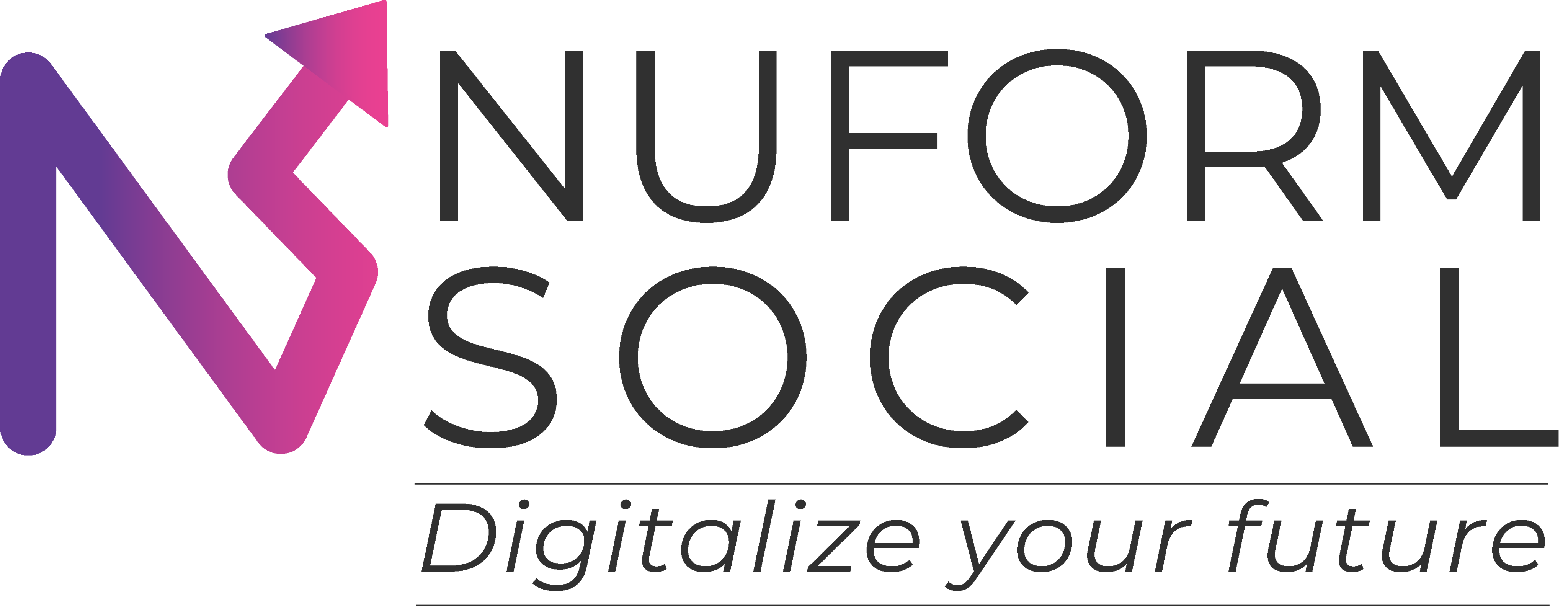Using AI Chatbots for Keyword Research: A Smart SEO Strategy in 2025
In the fast-evolving world of digital marketing, AI-powered tools are no longer a novelty—they’re a necessity. From content creation to customer service, artificial intelligence is transforming how marketers work. One area where AI is proving especially useful is keyword research—a core component of any successful SEO strategy.
Keyword research helps you understand what your audience is searching for, which topics to cover, and how to structure your content to rank higher on search engines. But traditional keyword tools can be expensive, time-consuming, and sometimes overwhelming for beginners.
That’s where AI chatbots come in.
Tools like ChatGPT, Claude, Gemini, Perplexity, and Copilot offer a faster, conversational way to brainstorm keyword ideas, understand intent, and build keyword clusters for your content plan.
In this article, we’ll break down:
- What AI chatbots can (and can’t) do for keyword research
- How to use them effectively
- Which free chatbots are best for the job
- Why combining AI with traditional SEO tools gives you the best of both worlds
Let’s explore how AI chatbots can become your keyword research assistants.
Can You Use AI Chatbots for Keyword Research?
Yes—you can absolutely use AI chatbots for keyword research. But like any tool, they come with strengths and limitations.
AI chatbots are designed to understand human language and generate meaningful responses. That makes them great for idea generation. You can feed them prompts like “Give me keyword ideas for a blog about plant-based diets”, and they’ll quickly return lists of relevant terms, long-tail phrases, and related topics.
What makes AI particularly helpful is its ability to understand context, search patterns, and natural language use. You can even ask these tools to analyze search intent, organize terms into clusters, or suggest blog structures based on your keywords.
However, AI chatbots don’t access real-time search engine data. They don’t know how many people are searching a term, how competitive a keyword is, or how it’s trending. That means they can’t replace tools like Google Keyword Planner, Ubersuggest, or Ahrefs when it comes to validating keywords.
The best strategy? Use AI chatbots for brainstorming and structuring, and follow up with traditional tools to validate keyword metrics like search volume, CPC, and difficulty.
What AI Chatbots Can Help
AI chatbots are versatile assistants when it comes to keyword research. Here are the key tasks they’re great at:
1. Generating Keyword Ideas
Simply enter a topic, question, or product and the chatbot will provide lists of:
- Seed keywords
- Long-tail keyword variations
- Question-based keywords (e.g., “how to,” “what is,” etc.)
This is especially useful during the brainstorming phase of content planning.
2. Understanding Keyword Relationships
Chatbots can group keywords by themes or related search terms, helping you uncover semantic relationships. For example, if you enter “home workouts,” you may also get terms like “bodyweight exercises,” “HIIT at home,” or “no-equipment fitness.”
This allows for smarter content clustering and internal linking strategies.
3. Creating Keyword Clusters
You can ask a chatbot to organize keywords into content clusters—ideal for building a blog series or content hub. A good follow-up prompt is: “Can you group these keywords into blog post ideas?”
4. Analyzing Search Intent
Chatbots can categorize keywords by search intent:
- Informational
- Navigational
- Transactional
- Commercial
This helps ensure your content matches the user’s goal, which improves engagement and conversions.
5. Saving Time & Budget
For freelancers, solopreneurs, or startups, AI chatbots are a cost-effective way to speed up keyword ideation without investing in premium SEO tools right away.
When used correctly, they offer an efficient way to move from idea to execution faster.
What AI Chatbots Can’t Do
Despite their many strengths, AI chatbots have several limitations that every SEO professional should be aware of.
1. No Access to Real-Time SEO Data
AI models like ChatGPT or Claude don’t pull data from live search engines. They can’t tell you:
- Actual monthly search volumes
- Keyword competition scores
- CPC (Cost Per Click) values
- SERP (Search Engine Results Page) dynamics
This means their suggestions are inspired by language patterns, not real-world search metrics
2. No Keyword Validation
You won’t know if a suggested keyword has:
- Enough search volume to matter
- Too much competition for your site to rank
- The right level of commercial value
That’s why you need to cross-reference AI-generated keywords with traditional SEO tools.
3. Risk of Hallucinations or Inaccuracy
Chatbots can sometimes “hallucinate”—producing made-up keywords or misinterpreting topics. Always double-check unusual or overly specific keyword suggestions before using them.
4. Broad or Irrelevant Suggestions
If your prompt isn’t specific, AI tools may give vague or generic keywords. It takes well-crafted prompts and follow-ups to get refined results.
In short, AI chatbots are powerful assistants—but they shouldn’t be your only research tool.
tus nec ullamcorper mattis, pulvinar dapibus leo.
5 Free AI Chatbots You Can Use for Keyword Research
A. ChatGPT
ChatGPT by OpenAI is one of the most accessible AI chatbots. It’s widely used for content ideation, and works especially well with clear, structured prompts.
What it does well:
- Returns keywords in neat lists (e.g., primary, long-tail, related)
- Offers basic search intent analysis
- Can group keywords into blog ideas
Limitations: May require follow-ups to refine keyword focus and remove off-topic suggestions.
Best for: Brainstorming and early-stage keyword clustering
B. Claude
Claude by Anthropic excels at contextual understanding and produces well-organized responses.
What it does well:
- Accepts screenshots of SERPs for better relevance
- Identifies core terminology, common user questions, and content gaps
- Produces structured keyword lists with content recommendations
Limitations: May require retrying prompts to improve output.
Best for: In-depth research with real-world SERP input
C. Gemini (by Google)
Gemini (formerly Bard) offers rich keyword ideas categorized by use case.
What it does well:
- Lists keywords by category (how-tos, long-tail, tool comparisons, trends)
- Strong contextual suggestions based on prompts
- Understands Google’s ecosystem well
Limitations: May overwhelm beginners with too many results.
Best for: Structured keyword discovery and content planning
D. Perplexity
Perplexity offers a research-focused chatbot experience.
What it does well:
- Suggests content headlines and topics (can be adjusted to keywords)
- Cites sources used for its answers
- Great for gathering competitive content insights
Limitations: Needs clearer prompts to produce keywords over headlines.
Best for: Market and topic research with keyword potential
E. Microsoft Copilot
Integrated with Microsoft apps, Copilot is good for keyword research on the fly.
What it does well:
- Generates concise keyword lists
- Suggests related prompts for deeper exploration
- Handles intent analysis quite well
Limitations: Sometimes delivers overly broad terms.
Best for: Quick discovery and Microsoft ecosystem users
How to Use AI Chatbots Effectively for Keyword Research
Getting the most out of AI chatbots means crafting effective prompts and iterating the process. Here’s how:
1. Start with Specific Prompts
Avoid vague prompts like “Give me some keywords.” Instead, say:
- “List 10 long-tail keywords related to intermittent fasting for beginners”
- “Group these keywords into blog post ideas”
- “Categorize keywords by search intent”
2. Use Follow-Up Prompts
AI chatbots improve with feedback. Ask:
- “Can you give me variations that are more niche?”
- “Which of these keywords are suitable for blog titles?”
- “Separate question-based keywords from transactional ones.”
3. Upload Contextual Info (If Available)
If the chatbot allows it (e.g., Claude or Gemini), upload:
- SERP screenshots
- Competitor blog posts
- Your own website content
This helps tailor keyword suggestions to your specific niche or voice.
4. Experiment and Compare Outputs
Try multiple chatbots for the same prompt and compare:
- Relevance
- Structure
- Creativity
This helps you identify which tools best match your workflow.
5. Combine with Keyword Tools
Use keyword tools to verify and prioritize the results AI chatbots give you. That’s where data meets creativity.
Why You Still Need Traditional SEO Tools
AI chatbots are excellent at ideation—but traditional SEO tools are still essential for decision-making.
Here’s why:
1. They Offer Real SEO Data
You need real-time metrics like:
- Search volume – How many people search for this monthly?
- Keyword difficulty – How hard is it to rank?
- CPC (Cost Per Click) – Is it commercially valuable?
- Trend analysis – Is this keyword growing or fading?
Only tools like Google Keyword Planner, Ahrefs, Moz, or Ubersuggest provide these insights.
2. They Help Prioritize Keywords
Once you’ve brainstormed 30–50 keywords using chatbots, run them through a traditional tool to:
- Filter out low-volume or overly competitive terms
- Identify terms with transactional or commercial value
- Focus on what’s both rankable and valuable
3. They Track Performance
SEO isn’t just about research—it’s about tracking and optimizing. Traditional tools help you:
- Monitor keyword rankings
- Audit your site’s performance
- Adjust your strategy over time
4. Best Practice: Blend Creativity + Data
- Use AI chatbots for inspiration and clustering
- Use keyword tools for validation and strategy
This hybrid approach saves time, reduces costs, and improves results.
Lorem ipsum dolor sit amet, consectetur adipiscing elit. Ut elit tellus, luctus nec ullamcorper mattis, pulvinar dapibus leo.
Conclusion
AI chatbots are powerful allies in the keyword research process. They offer speed, creativity, and efficiency—especially during the brainstorming and planning phases of content strategy.
Tools like ChatGPT, Claude, Gemini, Perplexity, and Copilot allow you to:
- Generate keyword ideas
- Understand user intent
- Organize keywords into content clusters
But they don’t offer real-world SEO metrics. For that, you still need traditional keyword research platforms to validate your findings, analyze trends, and measure difficulty.
In 2025 and beyond, the best SEO strategies will combine human insight, AI support, and trusted data to build content that ranks—and converts.
So, let AI chatbots guide your ideation, but let real-world data drive your decisions.
FAQs
1. Can AI chatbots replace traditional keyword research tools?
No. AI chatbots are excellent for brainstorming, but they can’t validate data like search volume or competition. They’re best used as supplements, not substitutes.
2. Are chatbot-generated keywords SEO-friendly?
Many are—but only if they match your audience’s intent and have actual search demand. Always verify AI-generated keywords using SEO tools like Ubersuggest, Ahrefs, or Google Keyword Planner.
3. Which chatbot is best for keyword research?
It depends on your needs:
- ChatGPT and Claude for brainstorming
- Gemini for detailed categorization
- Perplexity for competitive insight
- Copilot for quick suggestions inside Microsoft apps






